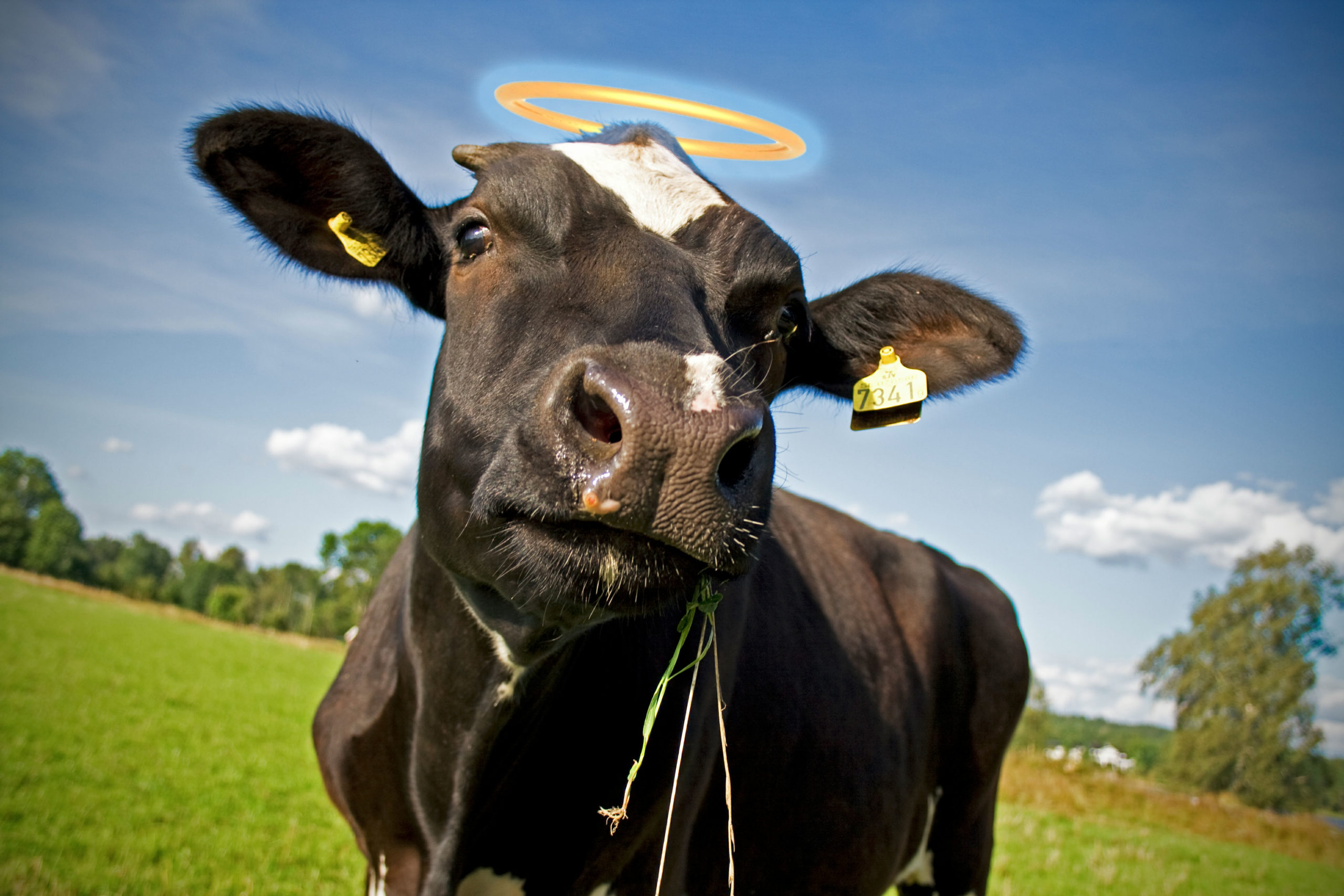Western ‘popular’ spirituality – it seems – is all about attachment – we know there’s something good out there (or in there) and we imagine that we can attract it to us by doing the right kind of stuff, by doing special spiritual stuff. It makes sense – of course – that this would be the case – we’re all about attachment in the West after all so it makes sense that we will to try to apply it to spirituality (or to what we like to call ‘spirituality’).
We love to talk about ‘abundance’, for example, and what better clue could there be than this word? The whole thing about ‘abundance’ is that it’s what we want. We talk about it so much because we really, really want it – obviously enough! We’re desperate for abundance and the reason we are is of course because it’s what we don’t have; we have something else instead, we have ‘inward poverty’, and there is nothing like inward poverty to make the idea of plenty loom large in our minds. There’s nothing more attractive than the notion of plenitude when we are coming from a place of poverty, nothing more exciting, nothing more seductive…
Aiming to attract abundance isn’t a spiritual kind of thing at all; wanting something very badly can’t be made into a spiritual practise – unless what we want so very badly is well-being, peace of mind and happiness for all human beings, which would of course be a different matter! The only reason we ever feel attracted to anything for ourselves is because we’re trying to offset an inner deficit, we’re trying to compensate for what we lack. As the Dao de Jing tells us, ‘the moment beauty comes into being, ugliness is born’. We might make the argument that beauty is a wonderful thing, a great and splendid thing, and that it is therefore only right that we should strive to have more beauty in the world but we’re not getting it. We’re not getting that as soon as we ascribe a positive value to ‘one thing as opposed to another’ we create the equal and opposite value.
The more longingly we cast our eyes towards abundance the more we conjure up the threat of its dreaded antithesis. The only reason abundance sounds as good to us as it does is because we’re coming from a place of poverty. As Emily Dickinson says in the first verse of Success is Counted Sweetest:
Success is counted sweetest
By those who ne’er succeed.
To comprehend a nectar
Requires sorest need.
The moment we get caught up in this sticky business of ‘like and dislike’ is the moment we start ‘chasing our own tails’, as Alan Watts puts it, and if we can’t understand this then going around in futile circles is all the future holds for us! The idea of ‘manifesting abundance’ is a joke – what else do we ever do apart from trying to manifest abundance of one thing or another? What else do we ever do apart from ‘yearning for the good stuff’, whatever that ‘good stuff’ might be? The thought of manifesting abundance is wrong-footing us right from the very start – the moment we attempt to attract whatever it is we want to attract we delude ourselves. The act of trying to manifest reifies ‘the one who is to do the manifesting’, the ‘one who is to hopefully going to benefit from accomplishing the task’, and it is this idea of there being such an entity (along with the idea that this imaginary entity is ‘who we are’) that constitutes the poverty that we’re trying so hard to get away from. As Jesus says in the Gospel of Thomas [Saying 3] –
…When you come to know yourselves, then you will become known, and you will realize that it is you who are the sons of the living father. But if you will not know yourselves, you dwell in poverty and it is you who are that poverty.
We ourselves are the poverty we seek to put an end to (if only we could see it), and without this insight whatever do to try to fix the situation is simply going to makes matters worse. Purposeful doing on behalf of the half-baked concept we have of ourselves only makes that concept seem more real to us; trying to spiritually improve ourselves quite the opposite effect to the one we want – by trying to untie ‘the knot’ we are making it ever tighter. The need to ‘seek refuge relief from the poverty which we are’ is what lies behind all of our attempts to ‘improve’ ourselves – this is the unacknowledged need that secretly fuels the mighty machine of consumerism (which seeks to maintain us as hungry ghosts) and it works every bit as well when it’s ‘spiritual products’ that we’re buying (instead of the regular, materialistic ones).
The basic principle that we find so very hard to understand (and which of course we don’t really want to understand) is that all our attempts to help ourselves (either in a spiritual or psychological way) are essentially counterproductive. This is what the alchemists called ‘the way of error’, the via erratum. The error cannot fix the error, the illusion cannot cure itself, no matter how strenuous its efforts. Blood cannot wash away blood, as the Zen saying has it…
Purposeful activity (or controlling) has a place in the outer, physical world but no place in the subtler world, the world that isn’t made up of subject-object relations. As we have said, what happens we do try to exert control in this sphere is that we get caught up in a polarity – our actions are self-negating, but we can’t see it. All purposeful activities based on attachment (which is to say, wanting one thing and not wanting the other, opposite thing); we’re ‘attracted to the one possibility and repelled by the other’ and acting on the basis of desire / fear is the mechanism that maintains polarity.
We could also talk in terms of ‘doing stuff for a reason’ – when we do stuff for a reason (when we proceed on the basis of an agenda) then we’re acting out of our thoughts, we’re acting out of ‘our rational understanding of our situation’. When we do this therefore (when we act out of our mental map of reality) then we reify that map, we reify our rational understanding of what’s going on and this essentially translates into ‘confusing the map with the territory’. The more we launch into purposeful activity (or ‘doing stuff for a reason’) the more we take the assumed basis for that activity for granted. We can get away with this – to some extent – in the ‘external world’, but we can’t get away with it in when it’s the subtler, ‘inner world’ that we’re talking about. There is no map or model for the inner world and if we think there is then what we have done is to convert that world into a mere thought, a mere idea. When we try to understand the Inside we convert it into the Outside!
We can’t act out a mental map of reality and explore what that map stands for at the same time; going ahead with our plans means tacitly agreeing that our theory of the world is the right one, which is an agreement that happens automatically and is instantly forgotten about! We have to agree – however provisionally – that our viewpoint is that correct one if we if we are to go ahead with what we want to do; ‘amnesia’ sets in we forget that our provisional understanding is ‘only provisional’ and we slip into unconsciousness (which means living a life that is based on unfounded illusions). This happens all the time – we slip into playing games without realising that this is what we’re doing. Playing consciously means that we have a ‘light or sensitive touch’, it means that we’re not grasping humourlessly at ‘absolutes’ the whole time. When we forget that our picture of the world is only provisional then grasping humourlessly at absolutes This isn’t something that happens sometimes either, it happens pretty much all the time – we forget that our understanding of the world isn’t the same thing as the world itself and so as a result we become driven, we become ‘machines’…
Our rational understanding of who we are (or what the world is) is necessarily founded upon polarity and polarity – as we have said – is a spinning wheel. Polarity -by its very nature – always cancels itself out in and so by taking the thinking mind seriously we absolutize YES and NO, we absolutize PLUS and MINUS, BETTER and WORSE. This means that we fall into the trap of thinking that these terms have an ‘independent existence of their own’ and that we can have ‘the one without the other’ – the bottom line is that we can’t however and the belief that we can does nothing more than spin the wheel ever faster. To pursue the outcome we crave is to be forever haunted by the one we fear.
There can be no purposefulness when we don’t have a mental picture of things – our goals come out of our models – there’s nowhere else they can come from. Purposefulness never exists without a tacitly assumed map and both always involve polarity – what else is purposeful activity, after all, if not thinking that we can have one opposite but not the other? If we saw that, in psychological terms, the outcome we want can only ever be obtained at the price of incurring the outcome we don’t want later on in the game then that would be the end of our belief in purposeful activity right there. we would understand ‘forcing’ to be counterproductive and we wouldn’t keep investing all our hope in it. It’s not tactics and strategies we need therefore, it’s insight and insight can’t be taught.
To understand polarity is therefore to understand that there is no way we can ever emerge from a game with a net profit (which is to say, there is no way we can emerge from the struggle triumphantly holding onto the opposite we want and having successfully gotten rid – forever – of the opposite that we don’t want). There’s no way we can ever actually win and this is why conditioned existence is suffering, or frustration – because we can never separate the opposites no matter how much effort we put into it. No one ever beats the wheel – no one ever has, and no one ever will!
As far as the psychological (or the spiritual) sphere is concerned, nothing is ever gained by straining for a goal; nothing is ever gained as a result of ‘straining for a goal’ because our purposeful activity always cancels itself out. The way to escape the ongoing frustration and confusion of the Wheel of YES and NO is through having an even mind, a non-polar mind, not an uneven or biassed one. Equanimity is the state of mind in which we aren’t getting sucked into the polarity associated with purposeful activity the whole time, and so it is the cultivation of even-mindedness that will help us, not anything else. Even-mindedness means that we don’t pick and choose, that we don’t hope and fear, that we don’t try to control or manage what is going on, that we don’t take responsibility for what is going on. We get out of our own way, we stop interfering, we allow some space for things to happen by themselves, without our direction, without our controlling.
If abundance comes our way then we’re OK about that, and if it doesn’t then we’re OK about that too. We’re not ‘running scared’, we’re not acting out of desire. What we’re describing here is ‘Eastern-style spirituality’ therefore, which is to say ‘non-attachment’ in Buddhism and Hinduism and Wu Wei (or ‘living harmoniously’) in Daoism. Needless to say, we don’t like the sound of this at all. We can’t for the life of us see how things could work out well unless we have a hand in it, unless we get personally involved in what is actually a perfectly natural process. Formal theories or models – therefore – have no part to play (and neither does technology, much as we would like it to). So although we are super-keen to adopt the trappings – at least – of Eastern metaphysics, we can’t help ourselves from tampering with it and adding that extra, very special Western ingredient, which is ‘the desire to always stay in control’!
Image – peakpx/com






